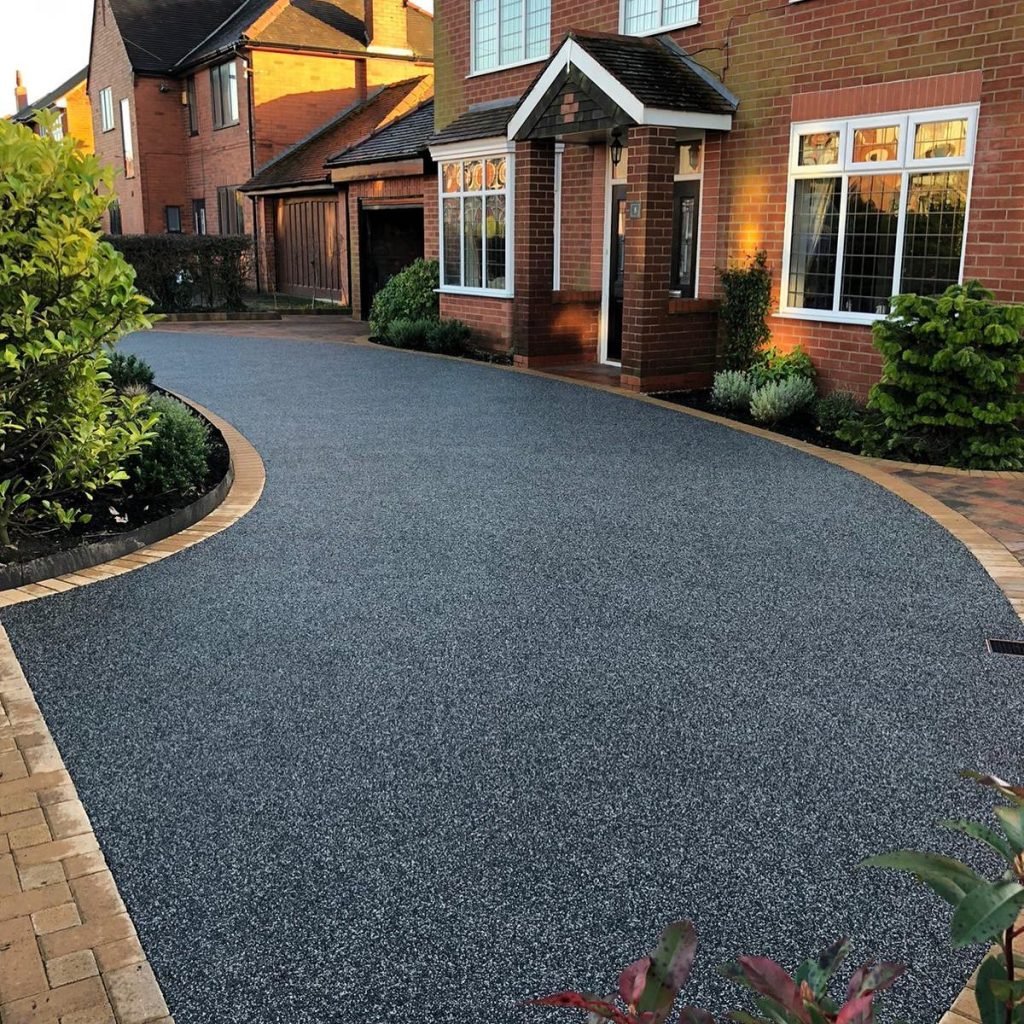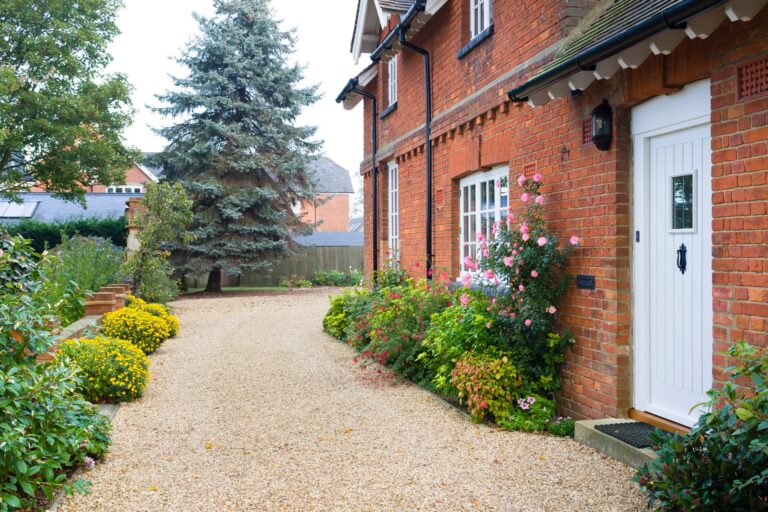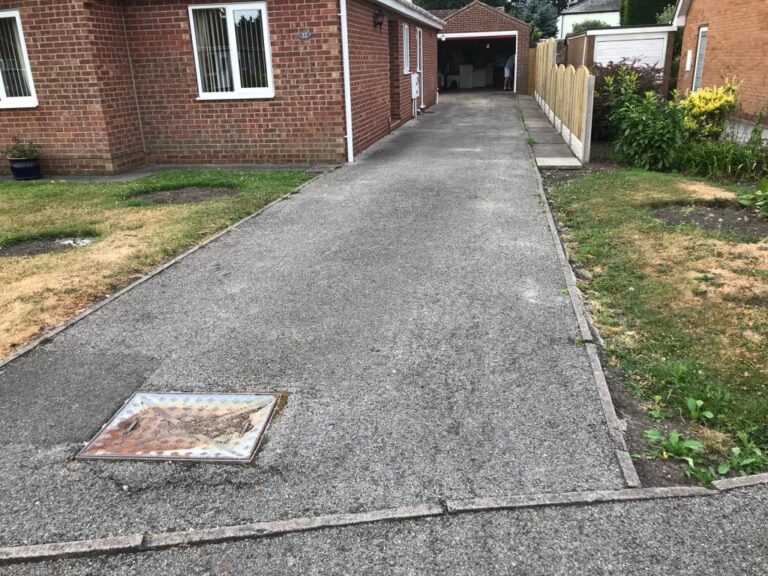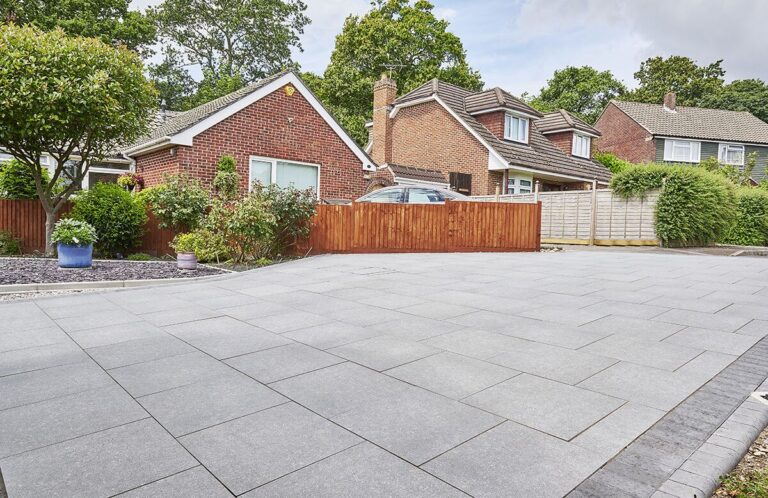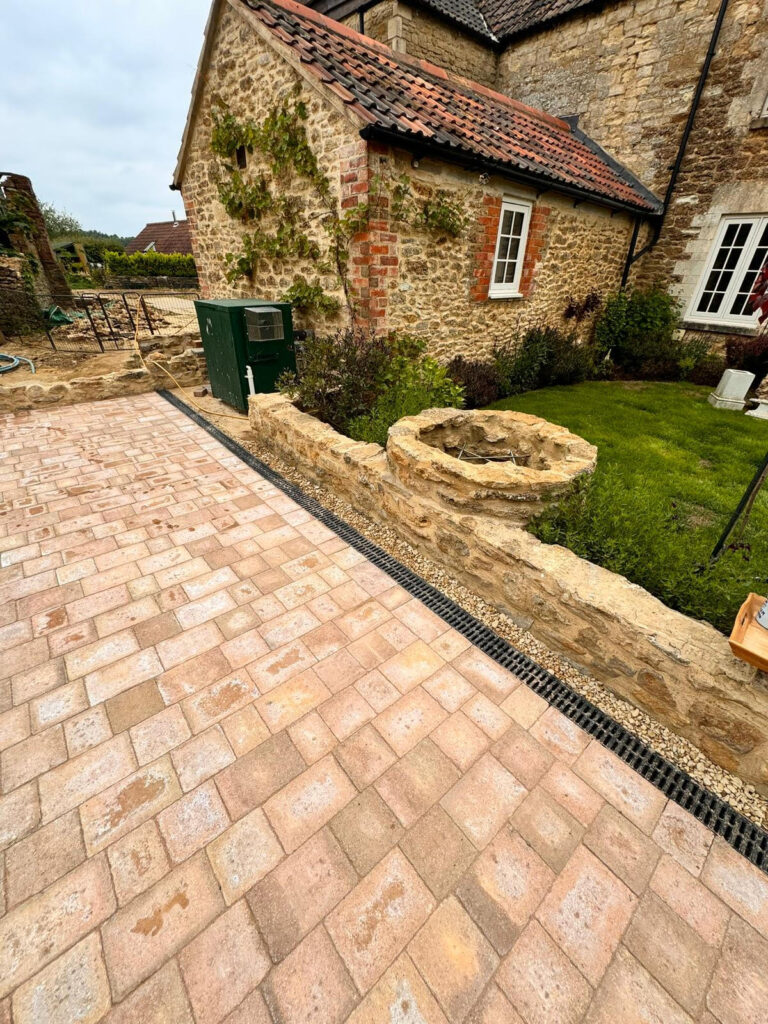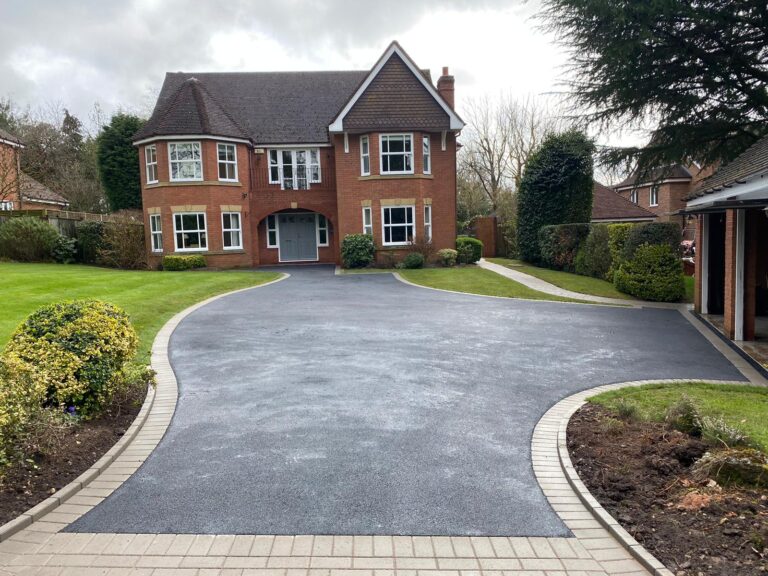As environmental awareness grows, homeowners are increasingly looking for ways to reduce their carbon footprint, and one area that can have a significant impact is the driveway.
Traditional driveway materials such as tarmac and concrete, while durable, can contribute to environmental issues like poor drainage and non-renewable resource usage.
Fortunately, there are sustainable alternatives and eco-friendly practices available that can help you create a driveway that’s both functional and environmentally responsible.
In this article, we’ll explore how to create a sustainable driveway, including eco-friendly materials and best practices that will reduce your environmental impact while maintaining the aesthetic appeal and durability of your driveway.
1. Choose Permeable Materials for Better Drainage
One of the most effective ways to create an eco-friendly driveway is to choose permeable materials that allow water to drain through the surface and into the ground. This helps reduce surface runoff, which can cause flooding, soil erosion, and water pollution. Traditional non-porous materials like tarmac and concrete often lead to water pooling and put additional strain on drainage systems, contributing to flooding in urban areas.
Eco-friendly alternatives:
- Permeable paving: Permeable block paving or concrete pavers allow rainwater to filter through the joints between the blocks, reducing runoff. These systems are designed to manage water naturally, allowing it to percolate back into the soil.
- Gravel: Gravel is another excellent choice for a sustainable driveway, as it’s naturally permeable and allows water to pass through easily. Additionally, gravel driveways are relatively easy to maintain, and the material can be replenished as needed.
Benefits:
- Improved drainage: Permeable surfaces prevent water pooling, reducing the risk of flooding and erosion.
- Groundwater recharge: By allowing water to filter through the driveway, you help replenish the local water table, which is especially important in areas with water scarcity.
2. Opt for Recycled and Sustainable Materials
Using recycled materials in your driveway construction is another effective way to reduce your environmental impact. By opting for recycled or repurposed materials, you help reduce waste and limit the need for new resources.
Eco-friendly alternatives:
- Recycled concrete: This is made from crushed concrete debris from demolition projects. It’s a cost-effective and sustainable option, as it helps divert construction waste from landfills while providing a durable surface.
- Recycled rubber: Some driveways are constructed using recycled rubber, which is made from old tyres. It’s an eco-friendly material that offers a smooth, durable, and flexible surface for your driveway.
- Recycled plastic pavers: These pavers are made from recycled plastic and offer a sustainable alternative to traditional materials. They can be used in both permeable and solid driveway applications.
Benefits:
- Waste reduction: By using recycled materials, you’re helping reduce landfill waste and contributing to the circular economy.
- Lower carbon footprint: The manufacturing process for recycled materials typically requires less energy than producing new materials, helping to reduce your carbon footprint.
3. Use Environmentally Friendly Sealants and Finishings
The finish you apply to your driveway can have a significant environmental impact. Many traditional sealants contain harmful chemicals and volatile organic compounds (VOCs) that contribute to air pollution and can leach into the soil. To make your driveway more sustainable, opt for eco-friendly sealants that are non-toxic and biodegradable.
Eco-friendly alternatives:
- Water-based sealants: These are a safer, more sustainable option compared to solvent-based sealants. They’re less harmful to the environment and easier to apply, and they still offer good protection against weathering.
- Natural stone sealers: Some natural stone sealers are made from plant-based oils or waxes, which help to protect and enhance the appearance of your driveway without introducing harmful chemicals.
Benefits:
- Safer for the environment: Non-toxic, biodegradable sealants ensure that harmful chemicals don’t leach into the surrounding soil, protecting plants and wildlife.
- Long-lasting protection: Eco-friendly sealants can still provide the protection your driveway needs while being kinder to the planet.
4. Consider Sustainable Construction Practices
The way you build your driveway can also impact its environmental footprint. Sustainable construction practices can reduce energy consumption, waste, and the need for additional resources.
Eco-friendly practices:
- Minimal excavation: Reducing the amount of digging and excavation needed for your driveway helps preserve the natural landscape and reduces the carbon emissions associated with construction equipment.
- Local sourcing: Using locally sourced materials helps reduce transportation emissions and supports local businesses. The closer the materials are sourced to your property, the less energy is spent transporting them.
- Proper preparation and installation: Ensure the base of your driveway is prepared correctly to avoid unnecessary repairs or resurfacing in the future. This will prolong the life of your driveway and reduce the need for additional resources down the line.
Benefits:
- Reduced environmental impact: Sustainable construction practices help minimise the carbon footprint of your driveway installation.
- Longevity and durability: Proper installation ensures your driveway lasts longer, reducing the need for frequent maintenance or replacement.
5. Maintain Your Driveway Sustainably
Maintaining your driveway is essential to ensure it lasts as long as possible, but it’s important to do so in an environmentally responsible way. Regular maintenance will reduce the need for resurfacing and unnecessary waste.
Eco-friendly maintenance tips:
- Clean with eco-friendly products: Avoid harsh chemicals when cleaning your driveway. Opt for natural cleaning solutions like vinegar, baking soda, or biodegradable soaps.
- Repair damage promptly: Fix cracks and potholes as soon as they appear to prevent further deterioration and prolong the lifespan of your driveway.
- Replenish gravel when needed: If you have a gravel driveway, replenish the gravel periodically to maintain a smooth surface. This reduces the need for resurfacing and can be done with minimal environmental impact.
Benefits:
- Reduced waste: Regular maintenance prevents unnecessary repairs or replacement, helping to conserve resources.
- Longer lifespan: A well-maintained driveway will last longer, saving you money and reducing the need for new materials.
Creating a sustainable driveway is an excellent way to reduce your environmental impact while enhancing the appearance and functionality of your property.
By choosing eco-friendly materials like permeable paving, recycled concrete, or sustainable sealants, and adopting environmentally responsible construction and maintenance practices, you can create a driveway that not only looks great but also helps protect the planet.
Whether you’re looking to reduce flooding, conserve water, or minimise your carbon footprint, a sustainable driveway offers a smart and environmentally conscious solution.

